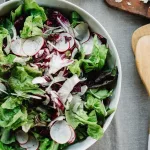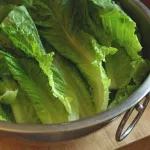Ever wonder why that slice of pizza that used to disappear in minutes now sits in your stomach for an hour, leaving you feeling heavy and a little uncomfortable? The truth is, as we get older, our digestive system slows down, and foods that were once “easy‑peasy” can start to feel like a marathon. Below you’ll discover which foods tend to become troublemakers, why they do, and practical ways to keep your meals enjoyable without the digestive drama.
How Digestion Changes
What actually slows down inside us?
When you hit the senior years, several things happen in the gut:
- Stomach‑acid declines. Less hydrochloric acid means proteins and dairy aren’t broken down as efficiently.
- Enzyme production drops. Amylase, lipase and especially lactase (the lactose‑breaker) become scarcer, leaving carbs, fats and dairy harder to process.
- Muscle tone weakens. The walls of the esophagus, stomach and intestines lose elasticity, so food moves more slowly through the tract.
- Gut‑microbiome shifts. Beneficial bacteria change with age, influencing everything from gas production to nutrient absorption.
All of these factors are described in detail by the MSD Manual, which explains how each part of the digestive system ages a little differently.
How does that feel day‑to‑day?
Most seniors notice a few common signals:
- Longer “full” feeling after meals.
- Bloating or a gentle pressure in the abdomen.
- Occasional heartburn, especially after fatty or spicy meals.
- More frequent constipation or irregular bowel movements.
These symptoms are not scary on their own, but they can become chronic if we keep feeding the gut foods it now struggles with.
Problem Foods List
High‑fat & fried foods
Fats are wonderful in moderation, but they’re the biggest slowdown factor for the stomach. When you eat a burger, fries or a deep‑fried snack, the body has to release extra bile and work harder to emulsify the fat. For anyone dealing with reduced stomach acid, this can translate into heartburn or a lingering heaviness. Healthline notes that high‑fat foods “can be harder to digest” and often trigger indigestion in older adults.
Dairy and lactose
Most of us produce less lactase after 50. That means a glass of milk, a scoop of ice‑cream, or even soft cheeses can cause gas, bloating and occasional diarrhea. The good news? Hard‑aged cheeses, like cheddar or Parmesan, contain far less lactose, and plant‑based milks (almond, oat, soy) are excellent swaps.
Spicy & acidic foods
Capsaicin, the hot punch in chili peppers, can irritate a stomach lining that’s become more sensitive with age. Studies point to a link between frequent spicy meals and dyspepsia (upset stomach) in seniors. If you love a little heat, try milder spices—think ginger, turmeric, or smoked paprika—which add flavor without the burning sensation.
Ultra‑processed & sugary drinks
Processed snacks, sodas and anything loaded with additives tend to be low in fiber and high in sugar. They can disrupt the gut microbiome, leading to bloating, IBS‑like symptoms, and even raise the risk of colorectal cancer over the long term according to Medical News Today.
Cruciferous veggies & beans
Broccoli, cauliflower, Brussels sprouts and beans are nutrient powerhouses, but they pack complex sugars (raffinose, stachyose) that many adults find difficult to break down. The result? Gas, bloating, and a rumbling tummy. Soaking beans overnight, cooking veggies until tender, or swapping stubborn beans for lentils can dramatically ease the discomfort.
Red meat (fatty cuts)
Red meat is dense in protein and fat. When stomach acid is lower, breaking down these components takes longer, often leaving a heavy, lingering feeling. Lean cuts (like sirloin tip or skinless poultry) are kinder to an aging gut.
Coffee & caffeinated sodas
The acidity of coffee and the stimulant effect of caffeine can relax the lower esophageal sphincter, inviting acid reflux. Switching to a low‑acid brew, cold‑brew coffee, or herbal teas can preserve the ritual without the burn.
Balancing Benefits
Why care about “foods to avoid aging”?
Skipping the hard‑to‑digest foods isn’t about deprivation; it’s about preserving nutrient absorption. When food lingers longer, the body often misses out on key vitamins—especially B12, calcium, iron and magnesium. These nutrients are vital for bone health, muscle maintenance and cognitive function. A 2023 analysis of NHANES data found adults 65+ who ate fried food more than three times a week were 1.8 × more likely to report chronic indigestion, which can eventually erode overall health.
Can we still enjoy them?
Absolutely! Balance and preparation are the secret sauce. Enjoy a cheese plate once a week, but pair it with a crisp salad and a splash of lemon to aid digestion. Or have a small portion of dark chocolate—rich in antioxidants—rather than a whole candy bar. The goal is moderation, not elimination.
Practical Tips
Cooking methods that help
- Steam or bake. These techniques soften fibers without adding excess oil.
- Air‑fry. Gives you that crunchy texture with far less fat.
- Add ginger or turmeric. Both are natural anti‑inflammatories that soothe the gut.
Portion control & pacing
Try the “½‑plate rule”: half of your plate is veggies (cooked to your liking), a quarter protein, and a quarter whole grains or starchy veg. Chew each bite 20–30 times and give yourself at least 20 minutes between bites. It sounds old‑school, but the extra chewing triggers enzymes in saliva, easing the downstream workload.
Probiotic and prebiotic support
Yogurt with live cultures (choose low‑lactose options) or a small serving of kefir can repopulate good bacteria. Fermented veggies—like sauerkraut or kimchi—are also excellent, as long as you start with a modest portion to see how your gut reacts.
Hydration & movement
Adequate water (about 1.5–2 L daily) helps fiber do its job, and a gentle 10‑minute walk after meals can stimulate peristalsis, moving food through the intestines faster.
Smart swaps
| Problem Food | Easier Alternative | Why it Helps |
|---|---|---|
| Fried chicken | Oven‑baked chicken with herbs | Less fat, lower bile demand |
| Whole milk | Lactose‑free almond milk | Little to no lactose |
| Raw broccoli | Steamed broccoli florets | Fibers softened, less gas |
| Red meat (fatty cut) | Skinless turkey or fish | Lean protein, easier breakdown |
| Regular coffee | Cold‑brew or herbal tea | Lower acidity, less reflux |
When to use digestive aids
Over‑the‑counter lactase tablets can make a dairy dessert tolerable, and a low‑dose betaine HCl supplement may boost stomach acid—always under a doctor’s guidance, though.
When To Seek Help
Red‑flag symptoms
Occasional bloating is normal, but watch out for:
- Unexplained weight loss.
- Blood in stool or vomit.
- Severe, persistent abdominal pain.
- Continuous diarrhea or constipation lasting more than a week.
If any of these appear, it’s time to schedule an appointment.
Medical evaluations you might get
A gastroenterologist may recommend:
- Stool testing for infections or inflammation.
- Breath tests for lactose or fructose intolerance.
- Upper endoscopy to view the esophagus and stomach lining.
Preparing for the visit
Keep a simple food‑symptom diary for a week—note what you ate, portion size, and any discomfort you felt. This data helps the doctor pinpoint the culprit quickly.
Conclusion
Understanding why hard to digest foods age the way they do empowers you to make smarter choices without giving up taste or enjoyment. Your digestive system may be slower, but with a few thoughtful tweaks—cooking methods, portion control, smart swaps, and a dash of friendly probiotics—you can keep meals satisfying and your gut happy.
What foods have you found harder to handle lately? Share your experience in the comments, or download our free “Senior Digestion Cheat Sheet” for quick reference. If you have lingering questions, feel free to ask—your gut will thank you!


















Leave a Reply
You must be logged in to post a comment.